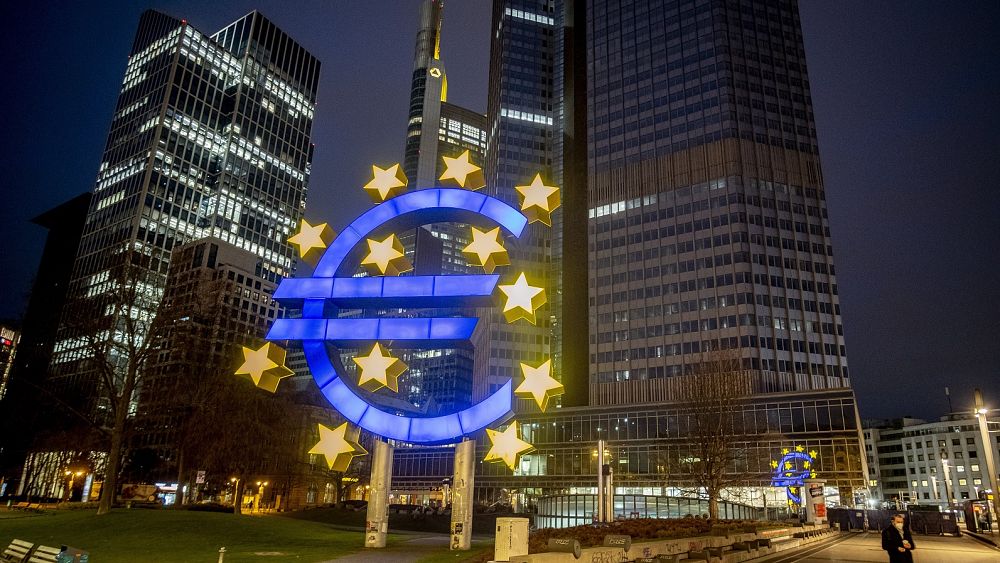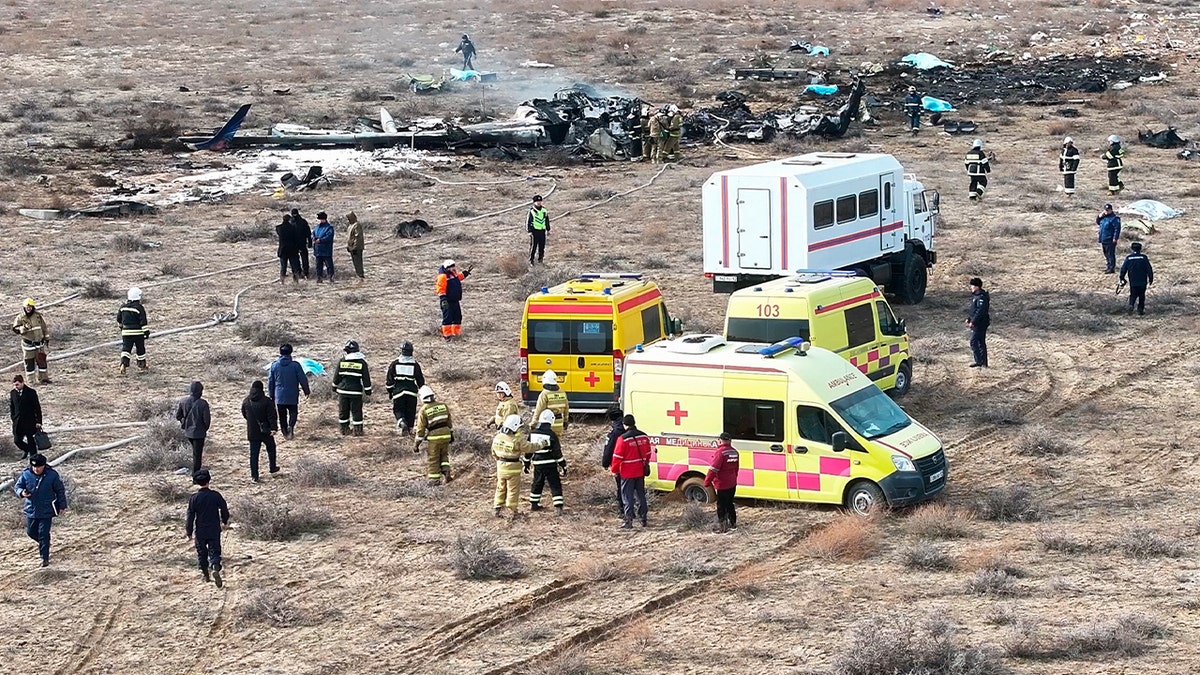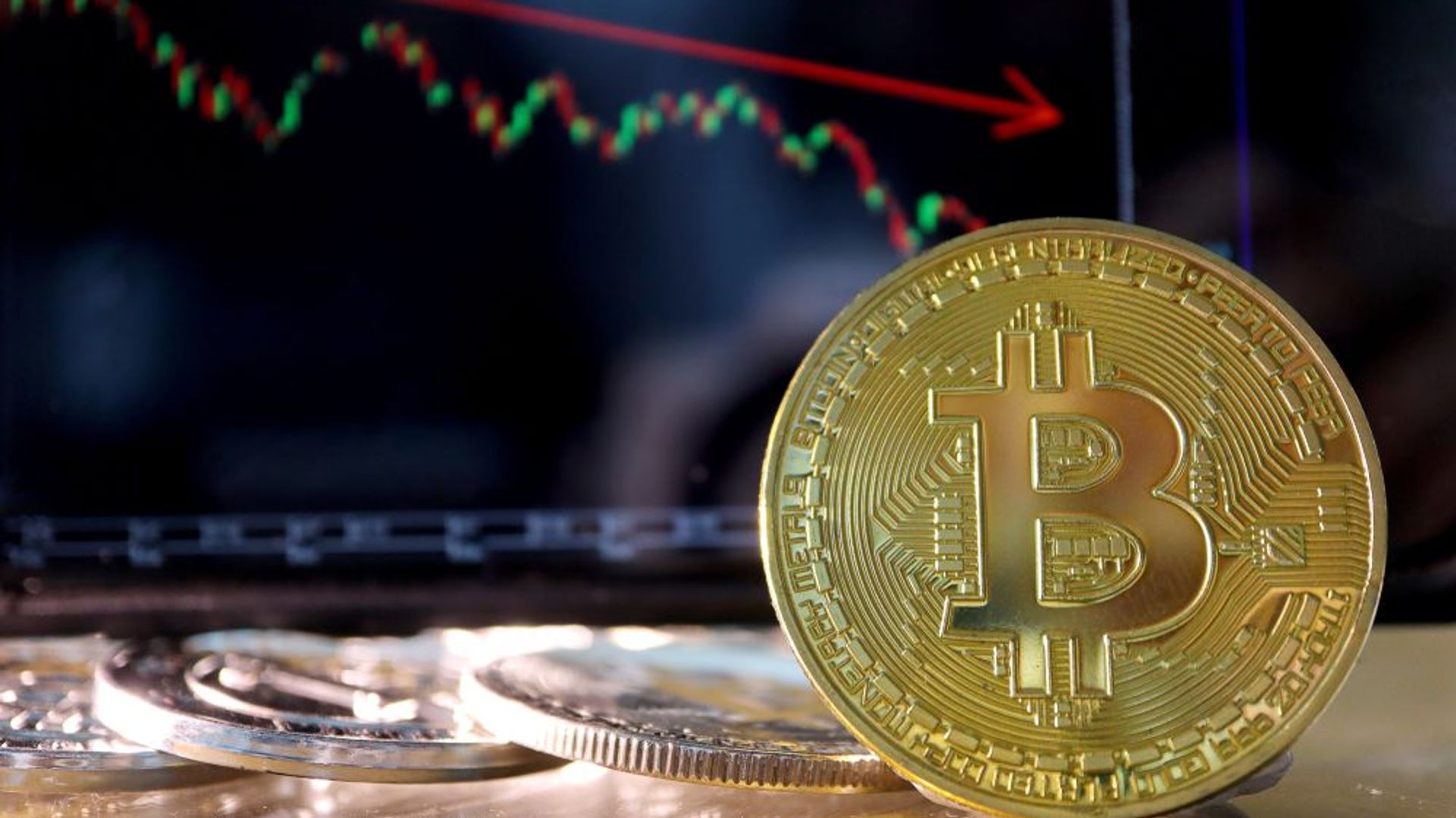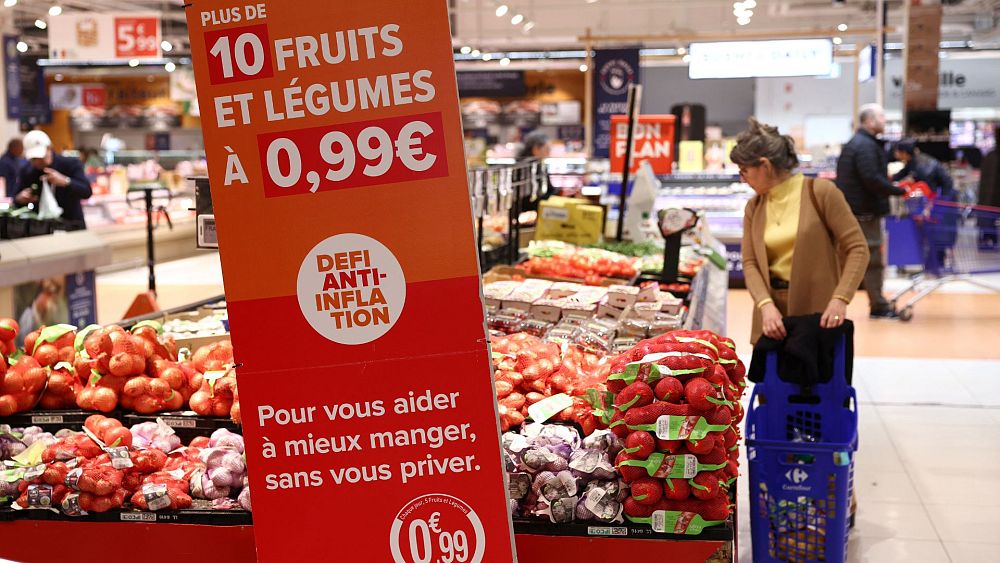World
Brussels unveils plans for a digital euro promising complete privacy

The Commission’s proposals would allow people to store up to €3,000 digital euros in secure wallets and use them for both offline and online payments.
With more and more people using digital tools for their daily transactions, the European Commission on Wednesday presented a proposal to initiate a digital euro.
Digital currencies have been surging in popularity over the last few years as cryptocurrencies like Bitcoin have entered the mainstream. But unlike Bitcoin, the digital euro would be a Central Bank Digital Currency (CBDC), essentialy electronic cash.
The aim would be to give consumers an alternative European-wide payment solution, in addition to the options that exist today, the Commission says.
“With the digital euro, people will be able to pay in ‘public money’. Uniquely, they will be able to pay both online and offline,” Valdis Dombrovskis, the Commission’s Executive Vice-President said during a press conference.
“Having a topped-up digital euro wallet on your phone – or other device – will be the same as having coins and banknotes in your pocket. You will be able to pay just as easily. You don’t even need to have an internet connection.”
He added that “it will be legal tender, backed by the European Central Bank to make it universally accepted across the euro area”.
According to the Commission’s data, 55% of EU citizens prefer paying cashless, 22% favour cash while 23% have no preference.
This proposal has already faced a wide range of objections from people over privacy concerns or from commercial banks over potential bank runs which the EU’s executive sought to alleviate by stressing there will be clauses of safety for all the involved parts.
“Personal data would be fully protected. Banks, not even the ECB, would not see or be able to trace, people’s personal details or data. Offline payments would offer a similar level of privacy as cash does today,” Dombrovskis told reporters.
He added that a provision would limit how much money people could keep in digital euros in order to reassure bankers.
“While people would be able to store digital euros in their device, the amount would be subject to a ceiling as a way to protect financial stability and avoid any substantial outflows from banks,” he specified.
ECB officials have suggested a cap of €3,000.
The final law must be backed by the EU’s 27 member states and the European Parliament. The ECB is expected to give the green light to a digital euro in October so that it can be launched in 2027.
China became the world’s first major economy to launch a digital currency, in 2020. Countries including Jamaica, the Eastern Caribbean and Bahamas also already have such digital currencies in place.
The US is in the process of developing a digital dollar but experts say that this could take some more years to happen.

World
Consejos para disfrutar de las celebraciones de fin de año, sin estrés
NUEVA YORK (AP) — Todos conocemos los factores de estrés: obligaciones sociales, rencillas familiares, divisiones políticas, estrés financiero y el deseo de mantenerse alegre y generoso todo el tiempo.
Así que aquí va un recordatorio sobre cómo desterrar a tu perfeccionista interior y disfrutar verdaderamente de la temporada festiva:
“Realmente ayuda dejar de lado algunos de los ‘deberías’”, dice Lynn F. Bufka, jefa de práctica de la Asociación Estadounidense de Psicología. “Decide cuál es la cosa que más importa, y las cosas que te brindan más alegría, y suelta las demás”.
Las tradiciones pueden cambiar y evolucionar, y cuanto más flexibles sean las cosas, más fácil será para todos, dice Bufka.
“Concentra tu energía en crear un espacio cálido para que las personas que amas se reúnan y relajen, se pongan al día y celebren unos a otros. Eso es literalmente todo lo que importa”, concuerda Lauren Iannotti, editora en jefe de Real Simple.
Algunos consejos:
Concéntrate en lo que te hace feliz
Podrías decidir que la conversación es tu objetivo principal y no preocuparte en absoluto por la decoración, dice Bufka. O si la decoración de la mesa es lo que amas, invierte tu energía allí y no te preocupes tanto por otros aspectos.
“Idealmente, debería tratarse de enfocarse en el amor, y eso no significa lo mismo para todos”, dice Bufka.
Permite que otros hagan las cosas por ti.
“La gente quiere ayudar, ¡déjalos!”, dice Iannotti. “Si no te ENCANTA cocinar todas esas guarniciones, o tienes poco tiempo, no hay ninguna vergüenza en aceptar que tu hermana haga el relleno. O busca ayuda de los profesionales: apoya a un restaurante local haciendo un pedido de catering”.
Otra opción es que “cada uno traiga un plato distintivo”, dice Ianotti. “Ahorrarás tiempo y dinero en la preparación y la cocina y tus invitados podrán mostrar sus habilidades”.
Darte permiso para tomar atajos
“Está bien si la casa está un poco desordenada o si la cena se sirve unos minutos tarde”, dice Iannotti. “Si las personas que has invitado están más interesadas en evaluar tu desempeño que en pasar un buen rato, pueden discutirlo con su terapeuta”. (Por cierto, no lo están, añade ella).
Y no dudes en dejar que la gente se sirva por sí misma, cuando sea posible. “Si no tienes tiempo para jugar a ser el barman, crea una bebida insignia con anticipación que puedas servir a todos tus invitados. También puedes simplemente dejar algunos mezcladores para que los invitados se sirvan y hagan sus propias creaciones”, sugiere Caroline Utz, directora editorial y de estrategia en The Spruce.
Está bien tener tiempo a solas
Las cosas funcionarán lo suficientemente bien si no lo supervisas todo, así que cuídate. Tómate pausas o caminatas si eso te ayuda a mantenerte centrado.
“Aunque el mindfulness se está convirtiendo en un término demasiado utilizado en la sociedad actual, hay algo valioso que podemos tomar de esto y aplicar a la temporada de fin de año”, dice Brook Choulet, psiquiatra deportiva y de rendimiento de concierge y fundadora de Choulet Performance Psychiatry.
Ella recomienda “programar microdescansos intencionales” para hacer algo que disfrutes.
“Por ejemplo, podrías programar una llamada telefónica con un amigo de otro estado, tomar un paseo de 15 minutos al aire libre, o incluso ajustar el temporizador y tomar un baño de 15 minutos sin interrupciones”, dijo.
Espera algo de discordia y no te alarmes por ello
“Si te preocupa la polarización y entrar en conversaciones incómodas, intenta pensar en maneras en que puedas terminar una conversación o cambiarla de dirección”, dice Bufka.
Ella recomienda preparar algunas frases de antemano para ayudar a terminar la conversación o cambiarla de dirección.
En resumen, tener la intención de una temporada festiva menos perfecta puede ser justo lo que necesitas.
___
Katherine Roth cubre temas de vida y estilo y otros temas para The Associated Press desde Nueva York.
___
Esta historia fue traducida del inglés por un editor de AP con la ayuda de una herramienta de inteligencia artificial generativa.
World
Azerbaijan Airlines plane headed to Russia crashes hundreds of miles off course, dozens feared dead

Dozens of passengers are feared dead after an Azerbaijan Airlines flight crashed near the city of Aktau in Kazakhstan on Wednesday, reports say.
The Embraer 190 passenger jet flying from Azerbaijan to Russia had 62 passengers and five crew on board, Kazakh authorities announced, saying 32 survivors had been rescued.
Flight J2-8243 had flown hundreds of miles off its scheduled route to crash on the opposite shore of the Caspian Sea. Officials did not immediately explain why it had crossed the sea, but the crash came shortly after drone strikes hit southern Russia. Drone activity has shut airports in the area in the past and the nearest Russian airport on the plane’s flight path was closed on Wednesday morning.
Russia’s aviation watchdog, meanwhile, said it was an emergency that may have been caused by a bird strike.
MORE THAN 30 DEAD IN BRAZIL BUS AND TRUCK COLLISION
In this photo taken from a video released by the administration of Mangystau region, the wreckage of Azerbaijan Airlines Embraer 190 lies on the ground near the airport of Aktau, Kazakhstan, Wednesday, Dec. 25, 2024. (The Administration of Mangystau Region/AP Photo)
Those aboard the plane included 42 Azerbaijani citizens, 16 Russian nationals, six Kazakhstani and three Kyrgyzstani citizens, according to Kazakhstani officials.
Russian news agency Interfax reported that both pilots died in the crash, citing a preliminary assessment by emergency workers at the scene. The news agency also quoted medical workers who stated that four bodies had been recovered from the crash so far.
A total of 29 survivors, including two children, have been hospitalized, the ministry told Russia’s state news agency, RIA Novosti, the Associated Press reported. Many passengers have yet to be accounted for.
MALAYSIA AGREES TO RESUME ‘NO FIND, NO FEE’ HUNT FOR FLIGHT MH370, 10 YEARS AFTER PLANE DISAPPEARED

More than 30 are feared dead following the crash near the Kazakhstani city of Aktau. (Azamat Sarsenbayev/AP Photo)
Video of the crash showed the plane descending rapidly before bursting into flames as it hit the seashore, and thick black smoke then rising, Reuters reported. Bloodied and bruised passengers could be seen stumbling from a piece of the fuselage that had remained intact.
Azerbaijani President Ilham Aliyev, who had been traveling to Russia, returned to Azerbaijan upon hearing news of the crash, the president’s press service said. Aliyev was due to attend an informal meeting of leaders of the Commonwealth of Independent States, a bloc of former Soviet countries founded after the collapse of the Soviet Union, in St. Petersburg.

Emergency crews at the site of the Azerbaijani airliner crash on Dec. 25, 2024. (Azamat Sarsenbayev/AP Photo)
Aliyev expressed his condolences to the families of the victims in a statement on social media.
“It is with deep sadness that I express my condolences to the families of the victims and wish a speedy recovery to those injured,” he wrote.
He also signed a decree declaring Dec. 26 a day of mourning in Azerbaijan.

The plane was en route from the Azerbaijani capital of Baku to the Russian city of Grozny in the North Caucasus, the Associated Press reports. (The Administration of Mangystau Region/AP Photo)
In a statement, Azerbaijan Airlines said it would keep members of the public updated and changed its social media banners to solid black.
“We ask God for mercy on the passengers and crew members who lost their lives,” a translated statement on X said. “Their pain is our pain. We wish a speedy recovery to those injured.”
Reuters and the Associated Press contributed to this report.
World
Who is Europe's top investor in space in 2023?

Luxembourg remains Europe’s top investor in space in a year when defence spending on space exceeded civil space budgets for the first time since the 1990s.
Global public investment in space hit a record high of €106 billion in 2023, an 11% increase compared to 2022.
In Europe, the total funding was €11.9 billion, showing a modest 1% rise in its share of global space investment.
According to the European Space Agency, defence spending on space exceeded civil space budgets last year for the first time since the 1990s. Defence expenditures in space are projected to grow faster than civil spending, making up 53% of the budget in 2024.
The US continues to dominate global space investment, accounting for 64% of the total budget, while China holds a strong second place, growing its share from an estimated 2% in 2000 to 12% in 2023 through long-term programmes in both civil and defence.
Europe ranks third, contributing 11% of the global space budget in 2023.
What share of their GDP do EU countries spend on public space budgets?
Luxembourg remains Europe’s leading investor in space, dedicating 0.135% of its Gross Domestic Product (GDP) to the sector.
Globally, the country ranks third behind the US (0.262%) and Russia (0.169%).
In Europe, Luxembourg is followed by France, which invests 0.167% of its GDP, Italy at 0.103%, and Belgium at 0.095%.
On the other hand, private investment in space has continued to decline in 2023, dropping by 32% compared to 2022.
Europe also saw a 14% decrease in 2023 compared to the year before, with private space ventures receiving just below €980 million.
Although the US accounts for most of the global decline in 2023, its space sector continues to attract the largest share of investments at 60%, followed by Europe with 16% and China with 9%.
What was the state of space activity in 2023?
There were 221 orbital launches in 2023, an 18% increase compared to 2022.
Yet, a total of 212 launches were successful.
The US carried out more than half of the launches, with 96 of them conducted by SpaceX.
China accounted for 30% with 67 launches, a 5% increase from 2022, and Russia completed 19 launches.
The European launch service provider conducted three launches in 2023, including Europe’s first mission to Jupiter, which aimed to explore whether the planet’s three moons — Callisto, Europa, and Ganymede — could support life in their oceans.
Video editor • Mert Can Yilmaz
-

 Business1 week ago
Business1 week agoFreddie Freeman's World Series walk-off grand slam baseball sells at auction for $1.56 million
-
/cdn.vox-cdn.com/uploads/chorus_asset/file/23951353/STK043_VRG_Illo_N_Barclay_3_Meta.jpg)
/cdn.vox-cdn.com/uploads/chorus_asset/file/23951353/STK043_VRG_Illo_N_Barclay_3_Meta.jpg) Technology1 week ago
Technology1 week agoMeta’s Instagram boss: who posted something matters more in the AI age
-
/cdn.vox-cdn.com/uploads/chorus_asset/file/24924653/236780_Google_AntiTrust_Trial_Custom_Art_CVirginia__0003_1.png)
/cdn.vox-cdn.com/uploads/chorus_asset/file/24924653/236780_Google_AntiTrust_Trial_Custom_Art_CVirginia__0003_1.png) Technology4 days ago
Technology4 days agoGoogle’s counteroffer to the government trying to break it up is unbundling Android apps
-

 News5 days ago
News5 days agoNovo Nordisk shares tumble as weight-loss drug trial data disappoints
-

 Politics5 days ago
Politics5 days agoIllegal immigrant sexually abused child in the U.S. after being removed from the country five times
-

 Entertainment6 days ago
Entertainment6 days ago'It's a little holiday gift': Inside the Weeknd's free Santa Monica show for his biggest fans
-

 Lifestyle6 days ago
Lifestyle6 days agoThink you can't dance? Get up and try these tips in our comic. We dare you!
-

 Technology7 days ago
Technology7 days agoFox News AI Newsletter: OpenAI responds to Elon Musk's lawsuit




:quality(70)/cloudfront-us-east-1.images.arcpublishing.com/adn/UKTA2VTJRNAPVHAM3Q4WGKJYFU.jpg)














